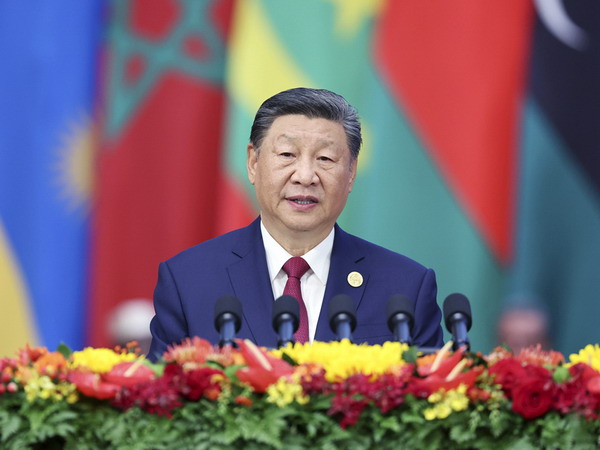Chinese President Xi Jinping said China is willing to strengthen solidarity with Latin American and Caribbean (LAC) countries and announced five major programs to jointly pursue development and revitalization with LAC countries on Tuesday.
The five programs, solidarity, development, civilization, peace, and people-to-people connectivity, were announced by Xi while delivering a keynote speech during the opening ceremony of the fourth ministerial meeting of the China-CELAC (the Community of Latin American and Caribbean States) Forum in Beijing.
On the solidarity program, Xi said China is willing to strengthen solidarity with Latin American and Caribbean (LAC) countries and continue to support each other on issues concerning their core interests and major concerns to firmly safeguard the international system with the UN at its core and international order underpinned by international law and to speak with one voice in international and regional affairs.
In the next three years, China will invite 300 members from political parties of CELAC member states every year to visit China to facilitate exchanges on national governance best practices, Xi said.
Regarding the development program, Xi said China is willing to work with LAC countries to implement the Global Development Initiative, resolutely uphold the multilateral trading system, ensure stable, unimpeded global industrial and supply chains, and promote an international environment of openness and cooperation.
Noting that the two sides should foster greater synergy between their development strategies and expand high-quality Belt and Road cooperation, Xi said China will import more quality products from LAC countries and encourage Chinese enterprises to expand their investment in the region.
On the civilization program, Xi called for the joint implementation of the Global Civilization Initiative. He said both sides should uphold the vision of equality, mutual learning, dialogue, and inclusiveness between civilizations, champion humanity’s common values of peace, development, fairness, justice, democracy, and freedom, and enhance China-LAC civilizational exchanges and mutual learning, including through a conference on China-LAC inter-civilizational dialogue.
For the peace program, Xi called for the joint implementation of the Global Security Initiative. He said both sides should cooperate more closely in disaster governance, cybersecurity, counterterrorism, anti-corruption, narcotics control, and combating transnational organized crime to safeguard security and stability in the region.
Regarding people-to-people connectivity, Xi said in the next three years, China will provide CELAC member states with 3,500 government scholarships, 10,000 training opportunities in China, 500 International Chinese Language Teachers Scholarships, 300 training opportunities for poverty reduction professionals, and 1,000 funded placements through the Chinese Bridge program, initiate 300 “small and beautiful” livelihood projects, and support CELAC member states in developing Chinese language education.
China has decided to offer a visa-free policy to five LAC countries and will expand the policy to cover more regional countries in due course, Xi said.
Gustavo Petro, president of Colombia, the CELAC rotating chair, Brazilian President Luiz Inacio Lula da Silva, Chilean President Gabriel Boric, and Dilma Rousseff, president of the New Development Bank and former Brazilian president, respectively, addressed the event.
The special representative for Yamandu Orsi, president of Uruguay and the incoming CELAC rotating chair, read out the president’s congratulatory letter.
Faced with a world full of uncertainties, LAC countries and China should work together to promote continuous new progress in building a community with a shared future, they said.
Both sides should respect each other and firmly support each other in safeguarding sovereignty and choosing their own development path, they said, calling for strengthening the synergy between the development strategies of LAC countries and the Belt and Road Initiative and promoting cooperation in trade, investment, infrastructure, agriculture, science and technology, new energy and education.
The two sides should also promote exchanges and dialogues among civilizations, safeguard the authority of the UN, support multilateralism and free trade, and oppose unilateralism, protectionism, power politics, and bullying to safeguard the common interests of the Global South, they added.
CAPTION: Chinese President Xi Jinping delivers a keynote speech during the opening ceremony of the fourth ministerial meeting of the China-CELAC (the Community of Latin American and Caribbean States) Forum, Beijing, capital of China, May 13, 2025


 Government3 weeks ago
Government3 weeks ago
 Government4 weeks ago
Government4 weeks ago
 Sports4 weeks ago
Sports4 weeks ago
 Local20 hours ago
Local20 hours ago
 Government4 weeks ago
Government4 weeks ago
 International2 weeks ago
International2 weeks ago
 Government4 weeks ago
Government4 weeks ago
 Tourism1 week ago
Tourism1 week ago




















